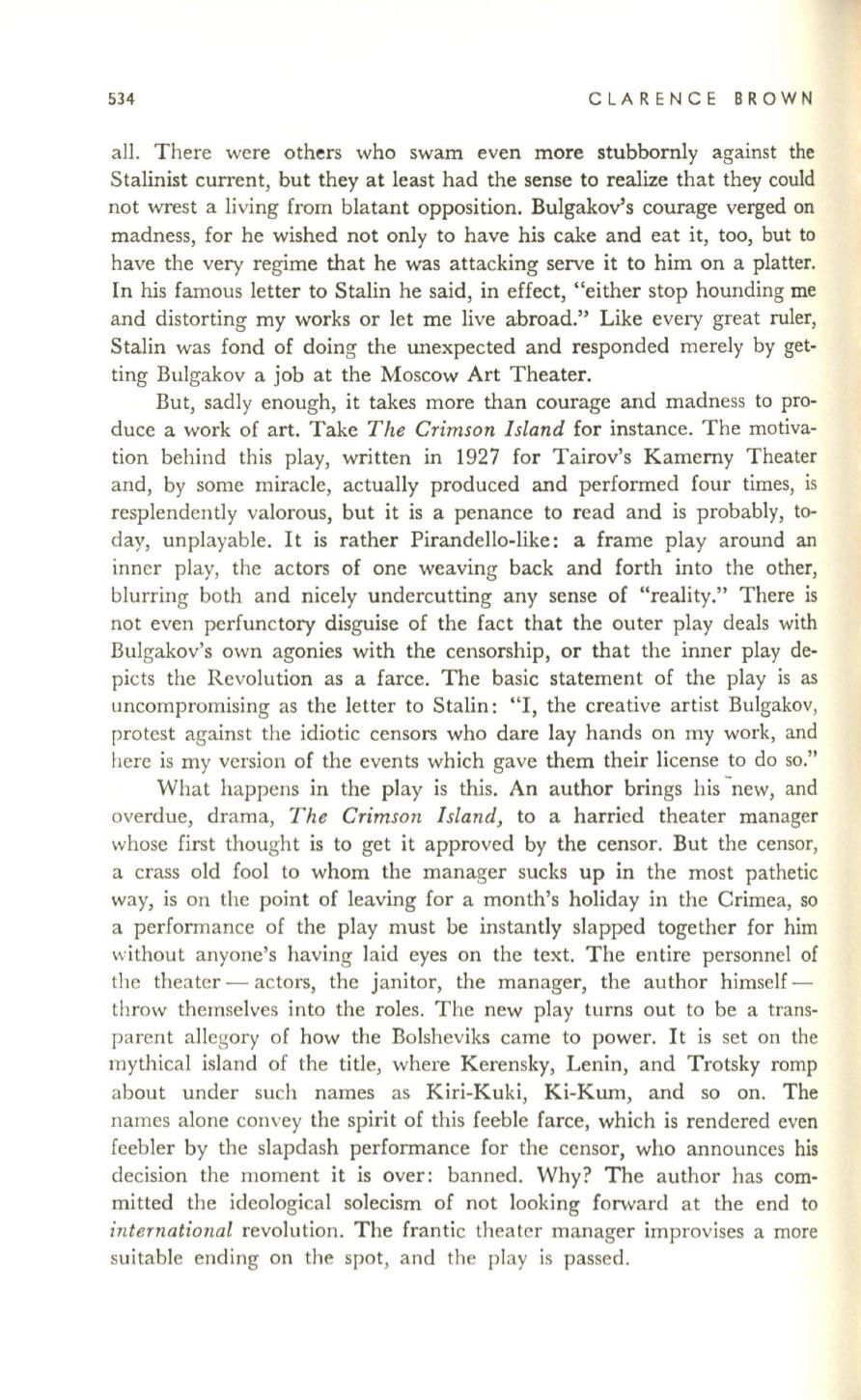
534
CLARENCE BROWN
all. There were others who swam even more stubbornly against the
Stalinist current, but they at least had the sense to realize that they could
not wrest a living from blatant opposition. Bulgakov's courage verged on
madness, for he wished not only to have his cake and eat it, too, but to
have the very regime that he was attacking serve it to him on a platter.
In his famous letter to Stalin he said, in effect, "either stop hounding me
and distorting my works or let me live abroad." Like every great ruler,
Stalin was fond of doing the unexpected and responded merely by get–
ting Bulgakov a job at the Moscow Art Theater.
But, sadly enough, it takes more than courage and madness to pro–
duce a work of art. Take
The Crimson Island
for instance. The motiva–
tion behind this play, written in 1927 for Tairov's Kamerny Theater
and, by some miracle, actually produced and performed four times, is
resplendently valorous, but it is a penance to read and is probably, to–
day, unplayable. It is rather Pirandello-like: a frame play around
an
inner play, the actors of one weaving back and forth into the other,
blurring both and nicely undercutting any sense of "reality." There is
not even perfunctory disguise of the fact that the outer play deals with
Bulgakov's own agonies with the censorship, or that the inner play de–
picts the Revolution as a farce. The basic statement of the play is as
uncompromising as the letter to Stalin: "I, the creative artist Bulgakov,
protest against the idiotic censors who dare lay hands on my work, and
here is my version of the events which gave them their license to do so."
What happens in the play is this. An author brings his -new, and
overdue, drama,
The Crimson Island,
to a harried theater manager
whose first thought is to get it approved by the censor. But the censor,
a crass old fool to whom the manager sucks up in the most pathetic
way, is on the point of leaving for a month's holiday in the Crimea, so
a performance of the play must be instantly slapped together for him
without anyone's having laid eyes on the text. The entire personnel of
the theater - actors, the janitor, the manager, the author himself–
throw themselves into the roles. The new play turns out to be a trans–
parent allegory of how the Bolsheviks came to power. It is set on the
mythical island of the title, where Kerensky, Lenin, and Trotsky romp
about under such names as Kiri-Kuki, Ki-Kum, and so on. The
names alone convey the spirit of this feeble farce, which is rendered even
feebler by the slapdash performance for the censor, who announces his
decision the moment it is over: banned. Why? The author has com–
mitted the ideological solecism of not looking forward at the end to
international
revolution. The frantic theater manager improvises a more
suitable ending on the spot, and the play is passed.


